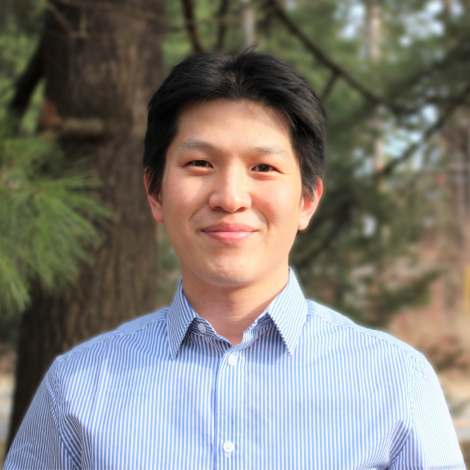Trump’s first term ushered in an era of anti-Asian discrimination in academia, marked by the infamous China Initiative, which wrongfully accused hundreds of wrongful accusations and destroyed the careers and sometimes lives of Chinese professors and scientists in America. The stage is already set for a new and even more damaging anti-China push, and Asian-American, as well as Chinese nationals in U.S. universities, must prepare for it.
The China Initiative’s Track Record Was Appalling
In 2018, two years into Trump’s first term, the Department of Justice’s (DOJ) “China Initiative,” a program launched in 2018 to prosecute alleged Chinese spies in U.S. research and industry. Although the program was terminated in 2022 after hundreds of investigations, its spirit was revived in September when the House passed H.R. 1398, a bill titled “Protect America’s Innovation and Economic Security from CCP [Chinese Communist Party] “. This bill has raised serious concerns among higher education advocates. The bill now awaits a Senate vote and seems likely to appeal to a newly Republican majority.
Asian scholars and their allies need to understand the bill and start taking action to protect themselves from discrimination—a trend which has already ended careers and even lives.
The China Initiative resulted in a significant number of wrongful accusations. Since 2018, over 250 scientists—primarily of Asian descent—were investigated under allegations of economic espionage or failing to disclose ties to China. However, an analysis by MIT Technology Review in December 2021 revealed that less than one-third of these cases (40 of the 148 individuals charged) have pleaded or been found guilty. Most of those “convictions” related to details omitted in immigration paperwork or U.S. grant applications—not espionage. Congressman Jerry Nadler (D-NY) called the initiative a “waste of valuable resources,” which is why it was scrapped in 2022.
Those supporting the new bill may argue that espionage threats still exist, and that a portion of suspects were rightly prosecuted. But every person—regardless of race or country of origin—deserves to be treated fairly in legal proceedings, and sadly, the overwhelming evidence shows that the initiative disproportionately targeted Asian scientists without just cause.
Racial Profiling Causes Real Harm
Racial profiling is not a victimless practice. The investigations under the China Initiative created a “chilling effect” among Asian researchers in the U.S., and many careers were destroyed as a result. 112 scientists (approximately 44% of those investigated) lost their jobs, reported in August 2024. A separate, yet similarly flawed investigation by the National Institutes of Health (NIH) in 2018 resulted in 246 scientists being investigated for collaborating with China, 81% of whom were Asian, reported Science. Of those, 42% lost their jobs, 21% were banned from applying for NIH grants, and 63% had their existing grants terminated.
The consequences are not just professional—they’re deeply personal. In December 2018, Shoucheng Zhang, a China-born, naturalized American scientist in quantum physics at Stanford, took his life, following the FBI’s interest in his activities. In July 2024, Dr. Jane Wu, a renowned neuroscientist at Northwestern, took her own life at her home in Chicago after her career collapsed due to an NIH investigation, according to the South China Morning Post. Zhang’s and Wu’s cases are tragic reminders that these policies are not just about numbers—they affect real people.
The China Initiative Hurts U.S. Science
Beyond the personal harm inflicted, policies like the China Initiative damage the U.S. scientific community by driving away top talent. A study by researchers at Princeton, Harvard, and MIT foundthat since the initiative’s launch, the departure of China-born scientists from the U.S. increased by 75%, with many relocating to China. Of the 1,304 Chinese American researchers surveyed, 72% said they no longer feel safe in the U.S., and 86% reported increased difficulty recruiting international students.
The chilling effect is undeniable, and it weakens America’s competitive edge in science and technology. To be sure, the bill’s proponents argue that the new “framework of multiagency cooperation and mutual consultation” will be more efficient. Despite their promised gains in efficiency, a rebranded China Initiative won’t erase the fear and distrust it has already sown.
Scholars Can Make a Difference
Scholars and academic communities can play a crucial role in stopping this legislation and in protecting themselves. Here’s what you can do:
1. Join national advocacy groups like APA Justice and the Asian American Scholars Forum, and attend their remote events. APA Justice has built an advocacy platform, and AASF has been running a series of campaigns to advance and protect Chinese-American scholars’ civil rights.
2. Support campus-based groups. For example, at Yale, multiple groups actively advocate for affected scholars and students, including the Asian Faculty Association at Yale (AFAY), and Asian Americans and STEM Initiative which I co-organize.. If your institution lacks such groups, consider organizing one, or helping to do so, to raise awareness and offer support.
3. Collaborate with national academic associations like the American Council on Education. The ACE is already advocating against the bill, by sending a letter to the House against the bill—your voice can strengthen their efforts.
By acting together, we can protect the integrity of U.S. higher education and ensure that discriminatory policies like the China Initiative do not take root again.
